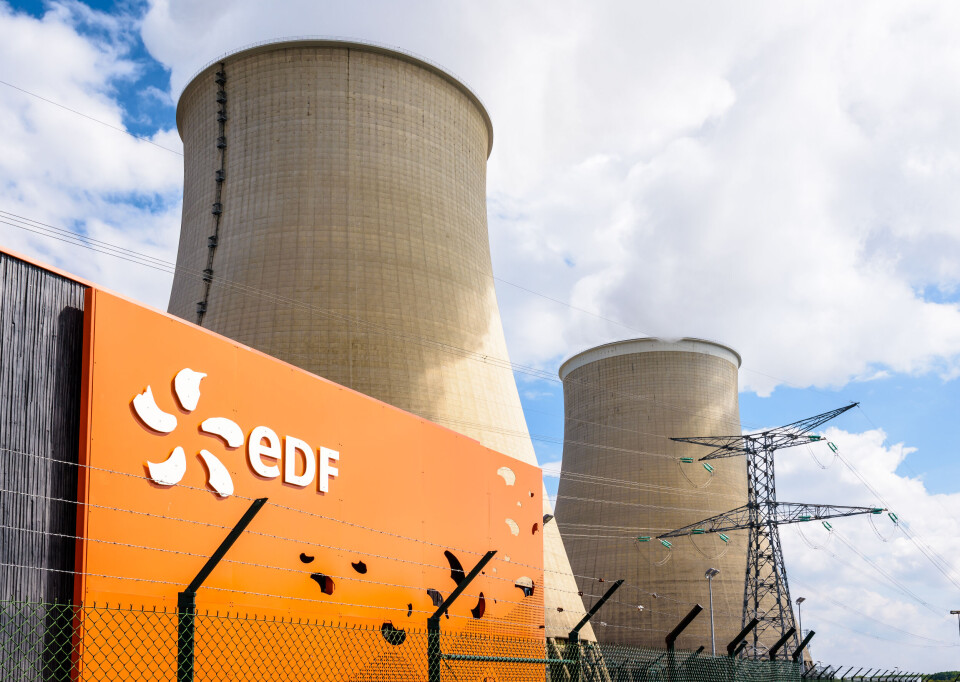-
Is France heading for another cold wave this month?
Predictions come amid unseasonably mild weather for much of January
-
France’s end-of-life law under debate as conditions examined
The text centres on the definition of and access to ‘medical assistance in dying’
-
Images: superb northern lights seen across France
Lights appear in rarer green colour following powerful solar flare
France to build six nuclear reactors and 50 offshore wind farms
President Macron unveiled the multi-billion euro plans yesterday as part of a drive to ‘take back control of France’s energy destiny’ and improve renewable energy production

France is to build six nuclear reactors and 50 offshore wind farms as part of moves to “take back control of its energy and industrial destiny”, President Emmanuel Macron has said.
Mr Macron was speaking in Belfort (Territoire-de-Belfort, Bourgogne-Franche-Comté), yesterday (Thursday, February 10), on the subject of achieving zero-carbon energy by 2050.
He presented more on France’s “Stratégie nationale bas-carbone (National low carbon strategy)” plan, which involves increased investment into renewable energy sources – including wind farms and solar – and a greater reliance on nuclear energy.
The president said: "If we want to respect our climate commitments…reduce our dependence on foreign countries for our energy needs, ensure the industrial development of our country…and control the energy bills of the French people, we have a duty to engage in structural and historic projects to prepare for the future.”
Aujourd’hui, la France fait un choix.
— Emmanuel Macron (@EmmanuelMacron) February 10, 2022
Celui du progrès, du climat, de l’emploi, du pouvoir d’achat. Celui de son indépendance. pic.twitter.com/Qx5mRVGNoS
6 new nuclear reactors
- To be built by 2050
- The first to begin service in 2035
- Objective to produce 25 gigawatts of nuclear power by 2050
- A study to be launched for eight extra reactors
- The reactors to be supported by ‘small modular reactors (SMR), which produce less waste
- Estimated to cost €50bn-€60bn
A plan for the financing of the project is set to be announced in the next few days, Economy Minister Bruno Le Maire has said.
Extension of existing reactors
President Macron said he would aim to “extend the life of all the reactors possible”, with EDF set to “study the conditions for extending them beyond 50 years”.
This represents a U-turn on previous government policy that had pledged to shut down older reactors.
The president explained: “I have taken two major decisions: to extend all the nuclear reactors that can be extended – without compromising on safety – [and] that no nuclear reactor in a state of production will be closed in the future...except for safety reasons.”
Development of solar and sea wind farms
- Aiming to ‘multiply by 10’ the current power available
- Solar energy production to go beyond 100 gigawatts
- Aiming to double the production of renewable electricity by 2030 and even more by 2050
- France to focus on sea wind farms, aiming to have 50 farms “producing 40 gigawatts” by 2050
President Macron said: “We will succeed by including everyone involved in working out at sea, in particular fishermen. The fight for the climate should never be to the detriment of the preservation of biodiversity, in particular marine ecosystems and fishery resources.”
Land wind farms ‘spread out over time’
- Plan to introduce wind farms on land only gradually
- To spread out plans to build more, beyond the previous target of 2030
The president acknowledged the “reluctance” that some people have towards wind farms on land, saying: “No-one wants to see our remarkable landscapes being damaged by huge white blades.”
€1bn investment into renewable energy
Mr Macron also said it was necessary to “continue to invest” in hydroelectric power and thermal renewable energy, such as biomass and biogas.
He said that France would “invest €1billion in innovation on renewable energy” by 2030, and aim to have 10% of power coming from renewable gas sources by the same time.
‘Too slow and expensive’: Response to nuclear power plans
Some have criticised the president’s plans, especially his suggestion that France should rely more on nuclear power.
Green politician and Maire of Grenoble Eric Piolle told FranceInfo: “On top of the risks, nuclear [power] is too slow and too expensive.”
He then criticised Emmanuel Macron’s approach towards renewable energies since he started his presidential reign.
"A president who has done very, very little [on renewable energies] for five years, at the head of the only European country that does not meet its development objectives in this area and who, with less than 60 days to go before the presidential election, says that in 2050, he will have done everything perfectly, for me, that is just panpipes"
Presidential candidate and eco-advocate Yannick Jadot, from the green EELV party, said: “They are announcing 14 more reactors, but where are we going to put them?”
He said that high electricity consumption in France was “already a problem”, and condemned the president’s “maximalist scenario in terms of energy consumption in 2050".
Nuclear energy over-reliance?
Similarly, some have raised concerns about over-reliance on nuclear energy, when EDF has already warned of possible power shortages and even power cuts this winter due to the stoppage of eight nuclear reactors after corrosion was detected.
Five reactors had already been stopped when three more were suspended, as EDF investigates the state of its infrastructure. This represents 20% of the nuclear production in France, but three-quarters of the electricity produced for use in the country.
However, electricity network RTE has sought to reassure people by saying that a “blackout or general loss of power” was very unlikely to happen over winter 2022.
Related articles
Regulated prices keep France’s electricity cheaper than EU neighbours
French public opinion growing against nuclear power
2022 French Presidential candidates divided over nuclear energy
























